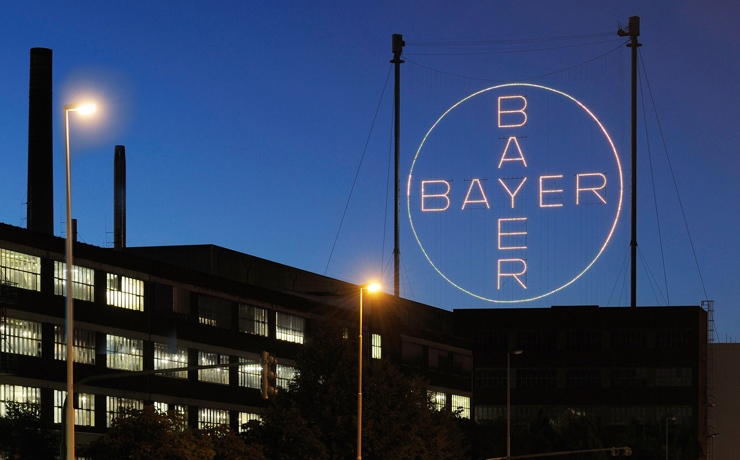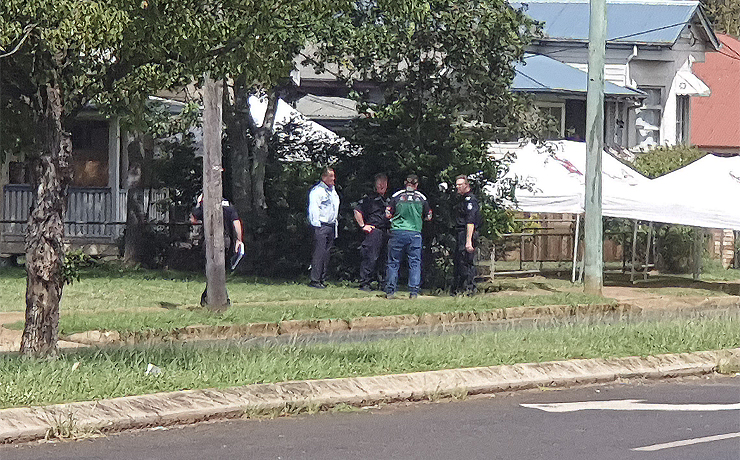

June 25, 2020
German multinational company Bayer AG has agreed to pay as much as $US10.9 billion ($15.8 billion) to settle almost 100,000 US lawsuits linked to the weedkiller Roundup.
The settlement finalises about 95 per cent of claims which had been facing trial in the United States.
Many of the American lawsuits claimed Roundup and other glyphosate-based weedkillers cause cancer, in particular non-Hodgkin lymphoma.
However, Bayer has not admitted any liability or wrongdoing. It inherited the litigation after taking over Monsanto in 2018.
A statement from Bayer’s headquarters in Leverkusen on Thursday said a series of agreements would substantially resolve major outstanding Monsanto litigation, including the Roundup product liability litigation in the US.
It would close about 75 per cent of about 125,000 filed and unfiled claims.
The agreements would also establish parameters to guide the resolution of the remainder of the claims as negotiations advanced.
“The resolution also puts in place a mechanism to resolve potential future claims efficiently,” Bayer said.
“The company will make a payment of $US8.8 billion to $US9.6 billion to resolve the current Roundup litigation, including an allowance expected to cover unresolved claims, and $US1.25 billion to support a separate class agreement to address potential future litigation.”
Bayer CEO Werner Baumann said the settlement was “the right action at the right time” to bring “a long period of uncertainty” to an end.
“It resolves most current claims and puts in place a clear mechanism to manage risks of potential future litigation,” Mr Baumann said.
The company statement said that before deciding to settle, Bayer had considered the alternative course of continuing to contest the cases.
In its risk assessment, potential negative outcomes of further litigation, including more advertising and growing numbers of plaintiffs, upwards of 20 trials per year, uncertain jury outcomes, associated reputational and business impacts would substantially exceed the settlement and related costs.
The agreements include the creation of an independent Class Science Panel which will determine whether Roundup can cause non-Hodgkin lymphoma, and if so, at what minimum exposure levels.
* * *

Federal Agriculture Minister David Littleproud told media on Thursday labelling standards in the United States were different to those in Australia.
Australian standards are set by the Australian Pesticides and Veterinary Medicines Authority (APVMA).
“The APVMA, as the regulator, makes sure that the directions and the labelling on glyphosate products is quite clear. And I say to all Australians, it is quite safe if you follow the directions.
“I’m confident that the APVMA has provided the right directions. I’m confident that if Australians continue to use it as per the label, (Roundup) is perfectly safe.
“The APVMA have tested this and independently verified it. I have every confidence in the APVMA. They’re the best scientists in the world. And they obviously are independent of the United States regulators and we expect that.
“So, I’m comfortable with that, and unless the APVMA gives me advice to the contrary, Roundup is quite safe to use and I just say to Australians, follow the directions. If you follow the labels, you will be perfectly safe in using glyphosate in any form.”
The APVMA completed a review of glyphosate in 1997. In 2016, APVMA again considered glyphosate and, according to its website, “found no grounds to place it under formal reconsideration again”.
Earlier this year, law firm Maurice Blackburn launched a class action against Monsanto “on behalf of all people who have been diagnosed with non-Hodgkin lymphoma by reason of using or being exposed to Roundup or Monsanto-branded products that contained glyphosate”.
“We allege that Monsanto was negligent in selling Roundup products which they knew (or ought to have known) could cause cancer. We also allege that the Roundup products had a safety defect and were not of acceptable quality under consumer protection legislation.”
On May 1, the Federal Court determined the action by Maurice Blackburn would be heard before any other class action about Roundup.
[UPDATED]
- External link: The statement by Bayer AG























